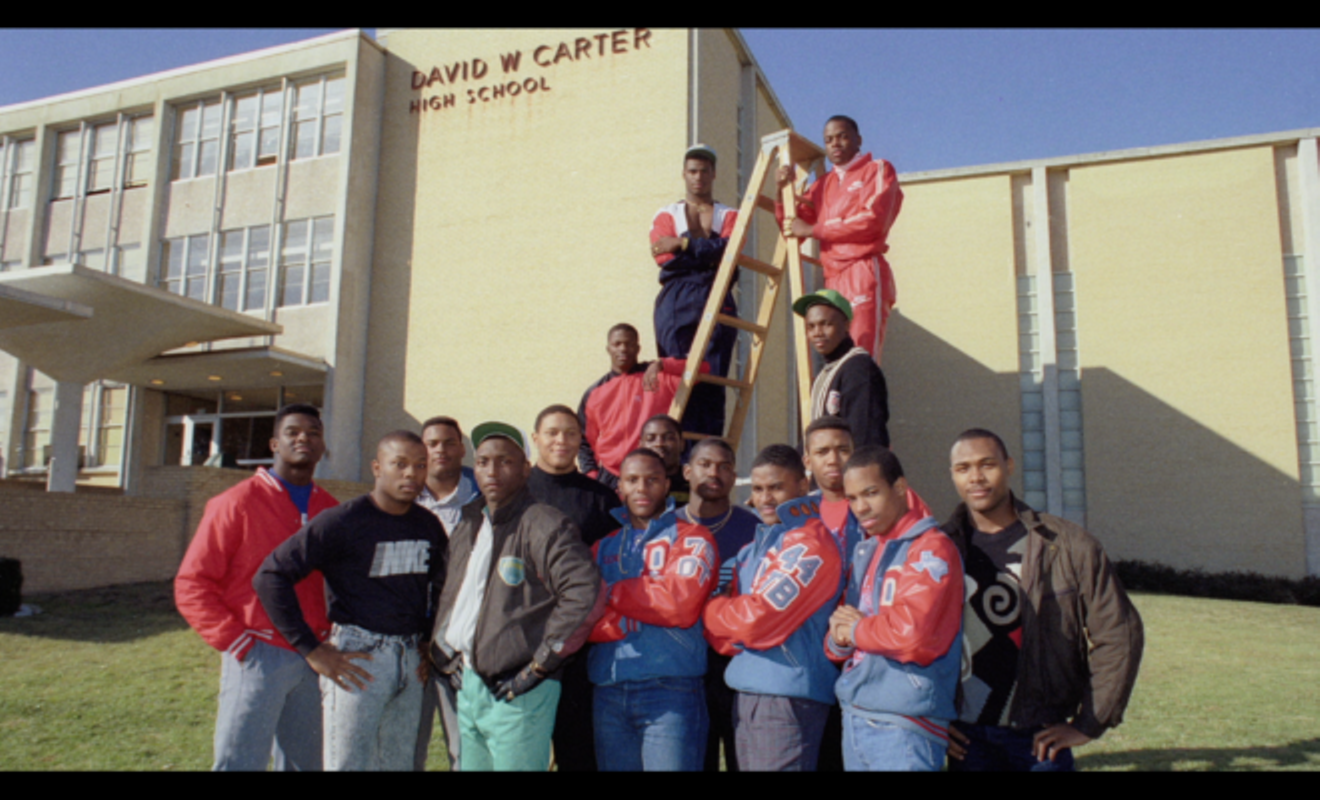What Carter Lost, the latest entry in ESPN's acclaimed 30 for 30 documentary series, tells the story of the team's triumph with aplomb, combining archival footage with updated play-by-play, re-creating the tension of Carter's last-second quarterfinal victory over Marshall and its rugged semifinal win over Odessa Permian a week later. The team's portrayal in 2004's Friday Night Lights is rightly skewered for the caricature that it is. While Carter is definitely in the inner city, its atmosphere and makeup in the '80s were also decidedly middle class, something director Adam Hootnick nails. Riding through the 1988 playoffs with the Cowboys is exhilarating, which makes the rest of the story told by Hootnick all the more devastating.
The academic scandal through which the Carter community suffers is drama enough to fill out the rest of the documentary's 77-minute run time. As Carter got set to play its first playoff game, the Texas Education Agency and University Scholastic League acted on an anonymous tip, banning the Cowboys from the playoffs for using an ineligible player. Hootnick turns the bureaucratic mess that followed into high drama. Thanks to a controversial new grading system implemented by then-Carter principal C.C. Russeau and a combative longtime math teacher named Wilfried Bates, star running and defensive back Gary Edwards ended up with an Algebra II grade that was failing, then passing, then failing again. As Carter players and educators make clear in the film, no one could figure it out.
The team's portrayal in 2004's Friday Night Lights is rightly skewered for the caricature that it is. While Carter is definitely in the inner-city, its atmosphere and makeup in the '80s was also decidedly middle class, something Hootnick nails.
tweet this
It appears Carter's run is over multiple times, only for the team to be saved, thanks to an appeal or a temporary injunction. The fight over Edwards' grade is shown to be a galvanizing event for Carter's players, parents and community. Carter keeps winning and develops an "us against the world" attitude exemplified by the profane chant the team uses while coming out of the stadium tunnel and onto the field. The feel-good story is cut short, however — not by the school losing its appeal over Edwards' grade, which happened in 1991 — but by the actions of six of the team's players, including Edwards and Derric Evans, an all-American defensive back with a full scholarship to the University of Tennessee.
Hootnick interviewed all six for What Carter Lost, and they do their best to tell the story. The players, feeling entitled and invincible, joined with more than a dozen other teenagers to commit a string of armed robberies in their middle-class southern Dallas neighborhood. Nearly 30 years later, they struggle to answer why they did what they did.
"They thought that whatever trouble they got in, someone would get them out of it" because they were star athletes, Hootnick told the Observer earlier this month. "They certainly didn't understand that they were creating a situation in which somebody could get hurt or killed. I don't think they processed all of that."
After the players were caught, denial ran rampant throughout the community. A police officer interviewed for the documentary recalls having to explain that he knew the players did what they were accused of doing because he'd arrested several of them. As the grieving process wound down, however, the many parents and players who dot the movie express acceptance about what happened. Although Edwards received an undeniably tough 16-year sentence, his father, Thurman Edwards, said he had accepted that "we live in a society where justice is done," in footage filmed shortly after Texas State District Judge Joe Kendall issued his verdict.
While Hootnick doesn't shy away from the 21 robberies in which the players and their friends were involved — which had several victims, including a woman robbed at gunpoint while picking up a shift for a friend at a video store — What Carter Lost's denouement highlights their redemptions and the tragedy of their teenage decisions. Since being released from prison, none of the six players has faced further legal trouble. All are productive members of society, saddled with the star-crossed legacy of being part of what legendary Texas sportswriter Randy Galloway calls the state's greatest "ghost team" late in the movie.
What Carter Lost airs at 8:30 p.m. tonight on ESPN.












